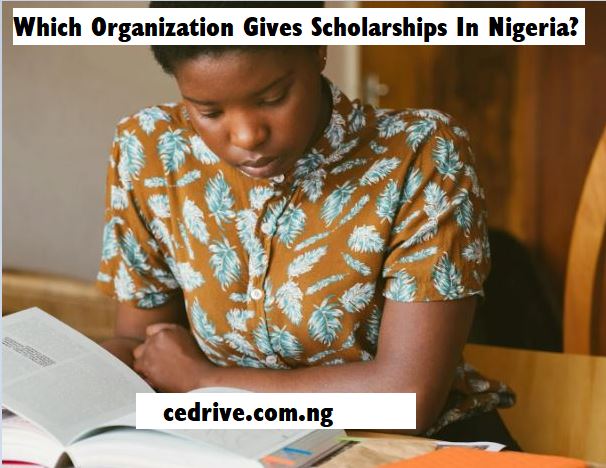Scholarship Programs With Transparent Criteria: Getting a scholarship can change your life. It can cover your fees, ease your stress, and open new doors. But many students never apply because they think the process is unfair. They believe you have to know someone, be from the right place, or just be lucky.
That used to be true for some programs. But things are changing. More scholarship programs now use transparent criteria. This means the rules are clear. The goals are open. And every student can see what is needed to win. These programs don’t play favorites.
If you’re tired of guessing or being left in the dark, this post is for you. We’ll show how scholarships work when the system is honest. You’ll see the real criteria. You’ll read examples. And you’ll learn how to apply with confidence.
Also, READ
How To Find Fair And Unbiased Scholarships
Scholarships Using Digital Transparency Tools
What Criteria Do They Use To Decide The Scholarship?
Every scholarship has its own rules. But some things show up again and again. These rules are called criteria. They help the team choose who gets the money.
First is academic performance. Most programs want students with good grades. This could mean a GPA, class rank, or exam score. Some want proof from your school. Others want official results like WAEC or JAMB. If you’re applying, always check what scores they ask for.
Second is financial need. Some programs are made to help poor students. They ask for proof of income. You might need a letter from your parent’s job or a local chief. The goal is to help those who can’t afford school.
Third is special background. Some programs help girls in science. Others help kids from rural areas. Some focus on people with a disability or those who lost a parent. These criteria are listed in the form. The good programs explain this well. That way, everyone knows what they’re applying for.
What Are The Key Characteristics Of Scholarships?
Scholarships are not all the same. Some are big. Some are small. Some last one year. Others follow you till you graduate. But the best ones share key traits. These signs help you know if a program is serious or not.
One trait is openness. Good programs post all details online. They say who can apply. They list what papers you need. They give a deadline. Nothing is hidden. You don’t have to guess.
Another trait is support. Strong scholarships cover school fees. Some also help with books, housing, or transport. A few even offer mentors or job links. If a program gives more than just money, it’s a sign they care.
The last trait is fairness. These programs follow rules. They check your forms. They test your skills. They score you without bias. Many use a panel or data system. If they say you didn’t win, they explain why. This builds trust and gives hope.
What Is An Example Of A Good Personal Statement For Scholarship?
A personal statement is your story. It’s where you show who you are and why you need help. A good one is simple, honest, and clear. Here’s a basic sample that works.
“My name is Aisha. I am a 200-level student of civil engineering at Ahmadu Bello University. I grew up in a small village where girls rarely go past secondary school. But I loved math and science. My parents are farmers. They struggle to pay my fees. I have kept a 4.2 GPA and joined the Women in STEM club. I hope to build roads that connect rural towns like mine. This scholarship will let me stay in school and reach that dream.”
This is short and clear. It shows need. It shows drive. It shows goals. It also adds a personal touch. If you write like this, the panel will remember you.
Which Nigerian Teenager Gets Scholarships From Harvard And Other Universities?
Every year, we see smart Nigerian teens break the news. They get offers from top schools like Harvard, Yale, or MIT. One popular name is Victory Yinka-Banjo. She made headlines when she got over $5 million in scholarship offers from top U.S. schools.
Victory scored straight As in WAEC and had high SAT scores. She also did public speaking and science contests. Her story proves that Nigerian students can get global scholarships if they prepare early.
These teens don’t get in by luck. They plan. They take tests like SAT and TOEFL. They join school clubs. They write strong essays. They apply to many schools. And they believe they belong.
You can be next. Start by checking schools abroad. Learn what they want. Take the right tests. Build a strong record. And don’t doubt yourself. Other students did it. You can too.
Which Country Gives Scholarships To Nigerian Students?
Many countries give scholarships to Nigerian students. The goal is to support learning and build global ties. Some of the top ones are listed below.
First is the United States. Programs like the Fulbright Scholarship and Mastercard Foundation support Nigerian students. Some U.S. universities also offer full funding if your grades and scores are high.
Second is the United Kingdom. The Chevening Scholarship and Commonwealth Scholarship are two big ones. They support graduate students who want to study in the UK.
Third is Germany. The DAAD scholarship is popular. It covers full tuition, housing, and even travel. Germany also has no tuition fees in many public schools.
Canada, China, and Hungary also offer help. Look up programs from each country. Most want good grades, clear goals, and English tests. Pick the one that fits your plan.
Does Harvard Accept WAEC?
Yes, Harvard can accept WAEC. But that’s not the only thing they need. WAEC alone won’t get you in. You also need SAT or ACT scores. You need essays, teacher reports, and a strong record in school.
Harvard understands that students come from different systems. They know WAEC is used in Nigeria. So they accept it as proof of school exams. But they still want more. They want to see how you rank in your school. They want to see how you think.
So if you have WAEC, that’s good. But also take SAT or ACT. Write your essays with care. Show your extra work like coding, sports, or art. Harvard wants the full story, not just one score.
Which Organization Gives Scholarships In Nigeria?

Many groups in Nigeria offer scholarships. Some are big. Some are local. Some focus on a state or tribe. Some are for everyone.
One big one is NNPC-SNEPCo. They offer help to students in university. You need good grades and proof of admission.
Another is the MTN Foundation. They help science students with cash support and tools. You must be in 200 level or more.
Others are Agbami Scholarship, NLNG, and Jim Ovia Foundation. State governments also give help. Lagos, Rivers, and Delta all have programs.
You can also check NGOs like Scholarship Aid Initiative. They help smart students from poor homes. When searching, use real sites. Don’t pay anyone who asks for money to apply.
How Do I Get A 100% Harvard Scholarship?
Harvard gives full scholarships. But not to everyone. They offer need-based aid. That means if your parents earn less, you get more help.
First, apply like any other student. Fill the Common App. Take SAT or ACT. Write your essays. Send your WAEC and school results. Ask teachers for reports.
Next, fill the financial aid forms. You will send details about your parents’ jobs and income. If they earn below a set level, Harvard may cover your full cost. That includes fees, books, housing, and food.
The key is honesty. Don’t fake your forms. Harvard checks. If you qualify, you get the help. If not, you can still get some aid. Many Nigerian students now go to Harvard with full support. You can too.
Conclusion
Scholarship programs with transparent criteria are changing the game. They open the door for real students with real dreams.
When you know the rules, you can plan better. You can write better forms. You can get in. These programs are fair. They use data. They want effort, not connections.
If you want to win, start now. Pick the right program. Build your grades. Tell your story. And trust the process. The help is out there. Go get it.

1 thought on “Scholarship Programs With Transparent Criteria”